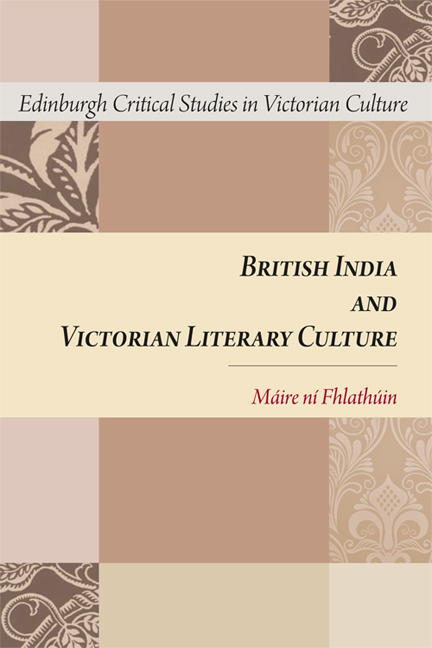Summary
This study explores the crystallising of a colonial literary culture in early nineteenth- century British India, and its development over the course of the Victorian period. It focuses on a wide range of texts, including works of historiography, travel writing, correspondence, fiction, and poetry, produced by amateur writers as well as writers who were better known and more professionalised. Its aim is to delineate the parameters and operations of a literary culture that is both local, in that it responds to the material conditions and experiences specific to colonial British India, and transnational, in that it evolves from and in reaction to the metropolitan culture of Britain. The writers I discuss were British, and lived and worked in British India (anglophone writing by Indians falls outside the parameters of this study). They often published their work for limited circulation within the colonial marketplace, but also with an eye to the more extensive readership of ‘home’. While individual authors’ works may be inconsequential or ephemeral, and sometimes apparently derivative of metropolitan texts and genres, the corpus in total constitutes a significant body of literature with its own concerns, themes and formats.
My work in this area is informed by previous work in the field of colonial literature and history, and by more recent scholarship on the literature of British India in particular. A great deal of this scholarship is underpinned by the concepts and methods of colonial discourse theory, and its formulation of the connections between literary discourse and the colonial relationship between Britain and India at all levels, from policy- making and rule to the experiences of individual colonisers. Readers will recognise behind much of my analysis in this book the foundational ideas of Edward Said and Homi Bhabha, particularly concerning the polar opposites of colonial difference and racial and cultural hybridity, and the tension between them in the history and literature of colonialism, as well as the insights of Gayatri Chakravorty Spivak into the ways in which race and gender hierarchies intersect to the detriment of those most excluded from power. In my own work, however, these theories underlie the analysis of specific texts and contexts.
- Type
- Chapter
- Information
- British India and Victorian Literary Culture , pp. 1 - 6Publisher: Edinburgh University PressPrint publication year: 2015

